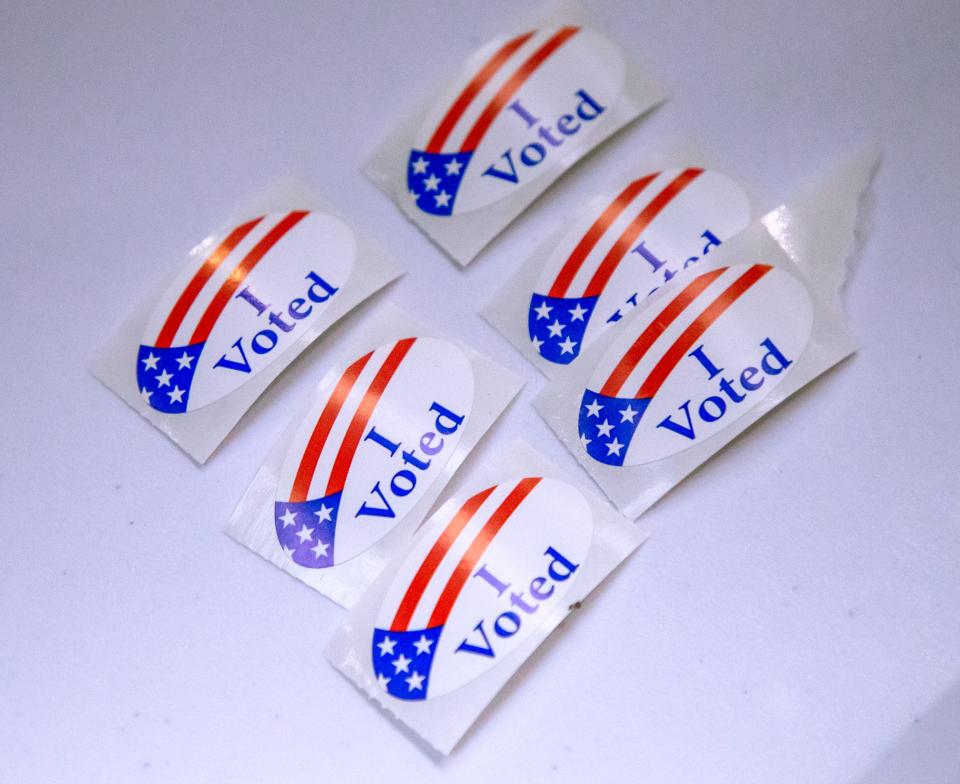Owner asks: Am I powerless to end one HOA president's 12-year dictatorship? Expert: Maybe
Live in a home governed by a condominium, co-op or homeowner's association? Have questions about what they can and cannot do? Ryan Poliakoff, an attorney and author based in Boca Raton, has answers.
Editor's note: While Ryan Poliakoff takes the weekend off for the holidays, we are re-running these items from columns written in 2021 and 2022. A new column will appear on Jan. 7, 2024.
Question: I live in an HOA, and our current board president has been president for 12 years.
Every time there is an election, he automatically becomes president again because there is not a quorum. I have proposed that we lower the quorum from 30% to 10%, but no one is interested. The president is also the only person on the architectural control committee, when our by-laws say the ACC should be three members selected by the board. This seems to be a dictatorship. What can we do? Signed, J.B.

Dear J.B.,
I agree, you seem to have a dictatorship, but it's a dictatorship born of active disinterest. Your neighbors are effectively rubber-stamping this continued system of "government" by failing to participate in the political process. Perhaps they all simply like the president and are fine with the decisions he has made, by himself, for many years. There is really nothing you can do here but to try to motivate your neighbors to participate in the next election. Yes, it will take a lot of work, but it's the only way to effectuate change.
Question: A few years ago I had mold damage in my condominium unit. My insurance company told me the condominium association was responsible for the cost of replacing the drywall. The condominium association told me they were not responsible and refused to pay me. Who is right? Signed, H.E.
Dear H.E.,In my experience both insurance companies and condominium associations over-simplify the question of who is responsible to repair interior drywall.
First, when you say you had "mold damage," what that really says to me is that your drywall was damaged by water, and then developed mold. The only alternative I have ever seen is when mold develops on interior surfaces due to a unit owner's failure to properly air condition their home; and in that situation, you would be responsible for your own negligent failure to properly maintain the interior of your unit.
Assuming that was not the case, the first question is, what caused the water damage? Was it caused by an "insurable event"? That is, was the damage from the type of casualty that would be covered by insurance, such as a flood from a broken pipe, or a hurricane? If so, the Condominium Act says that the condominium association is responsible to insure against the damage and to repair all drywall in the building.
If, in contrast, the damage was due to a non-insurable event (such as a slow drip from a pipe that collected over the course of a long period of time, or perhaps a leaking toilet or other slow and gradual leak), you would look to your condominium declaration to see who is responsible for the repair. Usually, the association is responsible for perimeter drywall and ceilings, and the unit owner is responsible for interior, non-structural drywall. That is not universal, however, and the only way to know for sure is to review the declaration.
It's conceivable that the damage was caused by a non-insurable event, and that the damage was to drywall that is not within the association's repair responsibility pursuant to your declaration of condominium; and so the association is correctly saying that they are not responsible for the replacement.
Now, let's consider separately the issue of the mold growth. The mold grew in your unit because the drywall was allowed to remain wet for an extended period of time. Why or how did that happen? Was it a hidden leak that was discovered after it occurred? Was the unit vacant, and the drywall damage (and resultant mold) discovered long after the leak occurred?
You have an obligation to monitor your own unit, and so, if you failed to report the damage to the association in a timely manner, they may really be saying that you are now responsible for the cost of the mold remediation and drywall replacement, as the mold would not have developed except for your negligent failure to monitor your unit and promptly report the damage.
Conversely, if you promptly reported the leak and damage and the association simply ignored you, and if the drywall was in an area that the association was obligated to repair, the association would likely be responsible for the cost of the mold remediation, as well.
Ryan Poliakoff, a partner at Poliakoff Backer, LLP, is a Board Certified specialist in condominium and planned development law. This column is dedicated to the memory of Gary Poliakoff. Ryan Poliakoff and Gary Poliakoff are co-authors of "New Neighborhoods — The Consumer’s Guide to Condominium, Co-Op and HOA Living." Email your questions to condocolumn@gmail.com. Please be sure to include your location.
This article originally appeared on Palm Beach Post: When homeowner association elections fail to draw a quorum of voters

